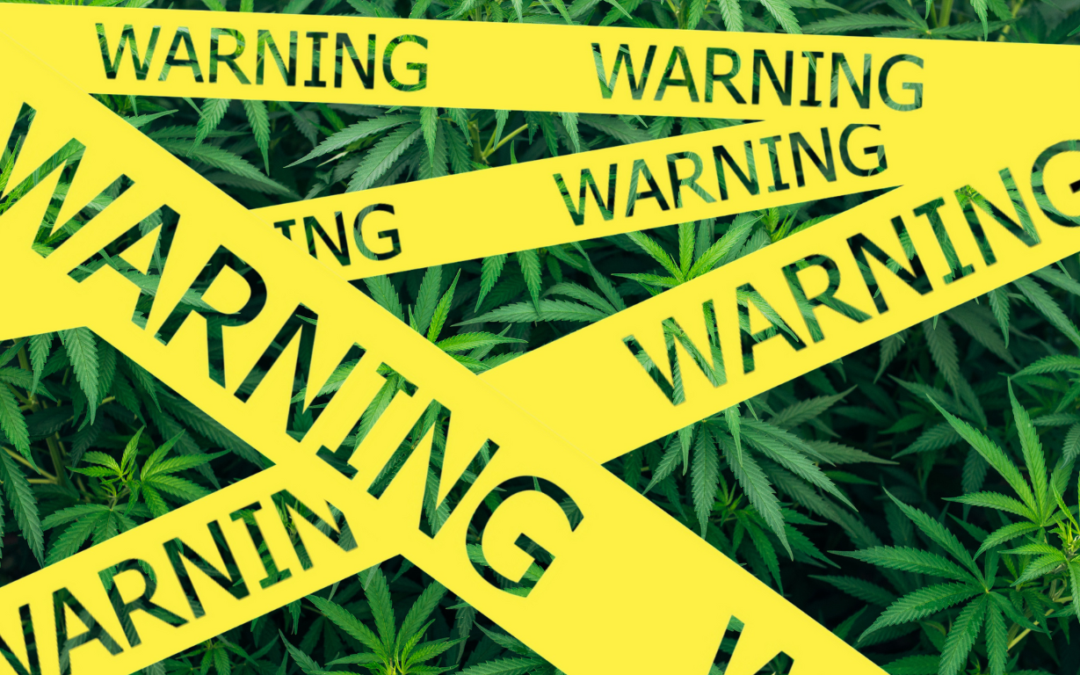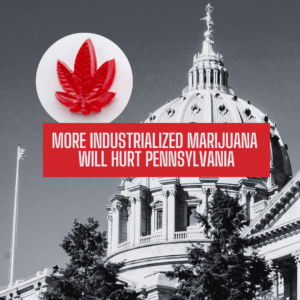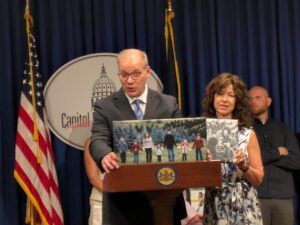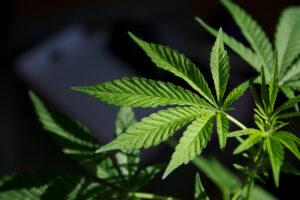A Bad Deal for Pennsylvanians
Governor Josh Shapiro continues to push for commercializing marijuana sales, with his plan for a 20 percent tax, which he is counting on to fuel his large increase in spending in his proposed 2026 state budget.
Gov. Shapiro admitted he changed his position on marijuana, and now dismisses his previous reservations as a father of four and Pennsylvania’s former chief law enforcement officer, alleging that all of his concerns have been alleviated.
However, based on the evidence in states experimenting with marijuana legalization, the harmful impact on our youth and law enforcement has not been alleviated. Instead, commercialization has only made it worse.
The Evidence is Clear: Legalization Brings Harm
In state after state where marijuana has been legalized for recreational use, the outcomes are troubling: more youth use, more traffic fatalities, more addiction, and communities struggling under the weight of unintended consequences.
One well-cited study by the Centennial Institute helps to understand better the economic and social costs of legalized marijuana. “While much has been written about the tax revenue and total sales generated from commercial marijuana, there has been little research to understand how Coloradans are paying to mitigate the consequences of commercial marijuana.”
The study found $4.50 in costs for every $1 in marijuana tax revenue. The report was a great first step in addressing the breadth of costs associated with marijuana commercialization.
As Dr. Tom Copeland, former Director of Research at the Centennial Institute, pointed out, “For Pennsylvania, any short-term revenue increase will be swallowed up by the serious long-term social and economic effects of legalization.”
Marijuana and Youth: A Dangerous Trend
Study after study confirms what common sense tells us: legalizing recreational marijuana leads to increased use among young people. According to researchers at Temple University, “Recreational legalization is likely to increase cannabis use among adolescents and young adults who perceive cannabis as less harmful.”
In Detroit’s public schools, drug-related incidents surged from 289 between 2019 and 2021 to a staggering 1,735 between 2021 and 2023. Their Superintendent, Dr. Nikolai Vitti, was direct: “Since the legalization of marijuana, our District has observed a distressing escalation in drug-related infractions.”
And it’s not just Detroit. Nationwide data shows that marijuana use among those age 12 and older has doubled in the past two decades, with daily use quadrupling. This is not a trend Pennsylvania should follow.
That’s why leading health organizations—including the American Academy of Pediatrics, the American Psychiatric Association, and the American Society for Addiction Medicine—are all opposed to the non-medical legalization of marijuana.
A Warning From Public Safety and Law Enforcement
Legalization comes with a high cost to public safety. One study estimates up to 1,400 additional traffic deaths per year in states with legalized recreational marijuana. Applying that data to our state, Pennsylvania could face at least 40 more fatal crashes and over 1,000 additional accidents annually.
Law enforcement across the Commonwealth is raising red flags. The Pennsylvania Fraternal Order of Police, the PA Chiefs of Police Association, and the PA District Attorneys Association all oppose non-medical marijuana legalization. Why? Because they see the consequences firsthand—in impaired driving, increased addiction, and communities overwhelmed by drugs.
In Denver, Colorado—one of the first states to legalize marijuana—local business owners are now pleading for help to restore order to their streets. As one store owner put it: “It’s not a homeless problem. It’s an addiction problem.”
Scott Bohn, Executive Director of the Pennsylvania Chiefs of Police Association, put it plainly: “Since the legalization of marijuana, researchers have found an increase in fatal crashes involving cannabis use.” He also warned about the risk to adolescents, emphasizing that today’s high-potency marijuana is far more dangerous than the drug of decades past.
“There’s just so many issues, and the only thing we’re talking about is money,” Bohn said.
What is the Cost?
Gov. Shapiro has made it clear that his motivation for marijuana legalization is potential tax revenue. But it begs the question: is it worth it?
Pennsylvania parents, police officers, doctors, and teachers are all sounding the alarm. Legalizing high-potency THC for recreational use may enrich some corporate interests, but it will also endanger our children, weaken our communities, and put more lives at risk on our roads.
As Dan Bartkowiak of PA Family Institute recently wrote:
“If Pennsylvania lawmakers follow Gov. Josh Shapiro and the marijuana industry in pushing industrialized and addictive marijuana for recreational sale, the consequences for our children, mental health, and road safety will be severe. Despite previously expressing concern as a father and former law enforcement official, Shapiro has now clearly aligned himself with Big Marijuana—ignoring the mounting evidence of its dangers.”
Now Is the Time to Speak Up
Marijuana is not a harmless substance. It’s addictive, increasingly potent, and already causing significant harm in states experimenting with legalization.
Pennsylvania would be wise to reject this dangerous experiment.
We urge lawmakers to oppose this dangerous proposal and stand with the families, first responders, and public health experts who are working to build a safer, healthier Pennsylvania.




